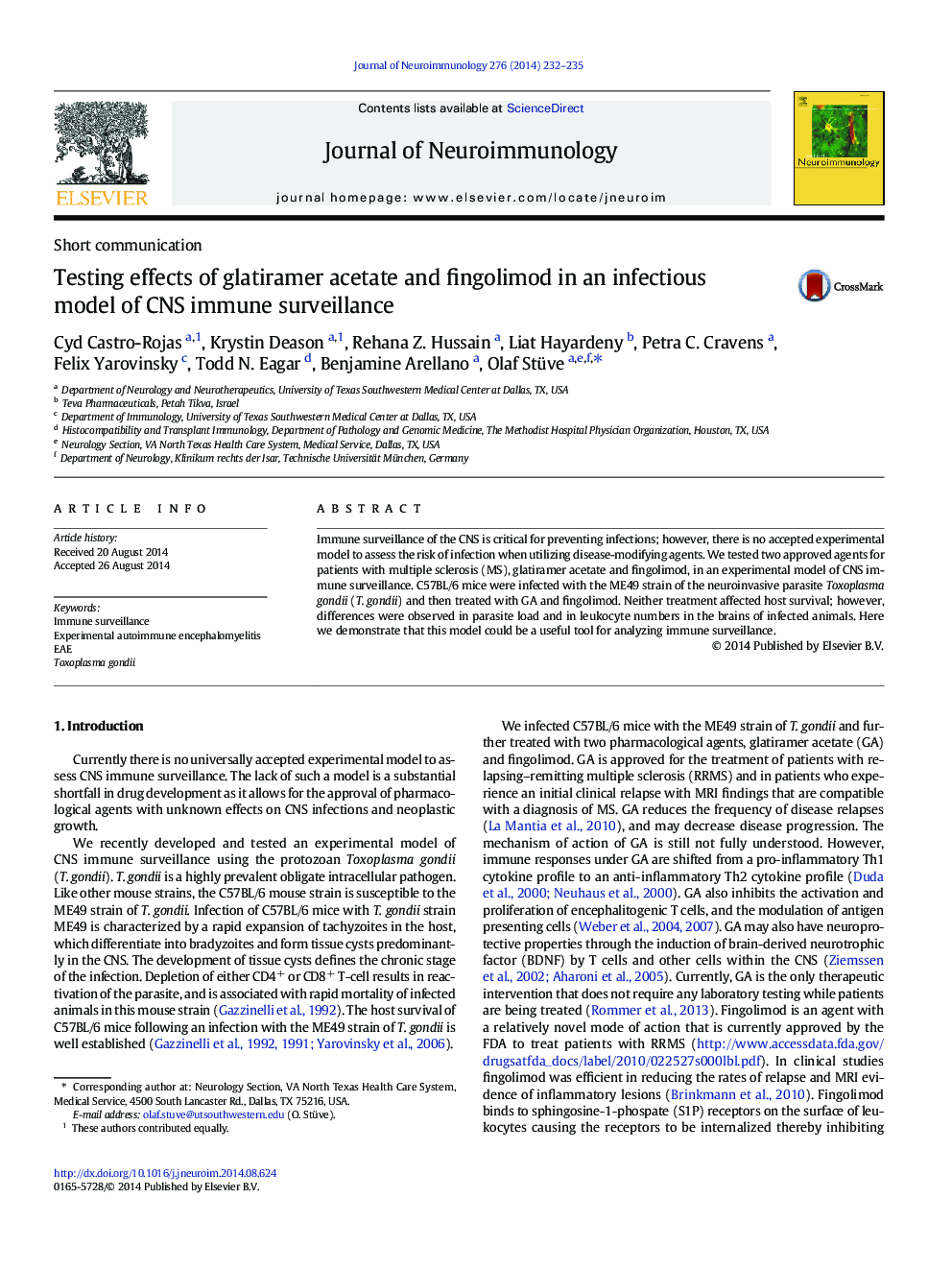| Article ID | Journal | Published Year | Pages | File Type |
|---|---|---|---|---|
| 3063997 | Journal of Neuroimmunology | 2014 | 4 Pages |
•Therapy of multiple sclerosis (MS) involves the reduction of immune-competent cells.•Alternatively, cells are sequestered away from the target organ.•An experimental model that evaluates CNS immunesurveillance is introduced.•Glatiramer acetate and fingolimod have differential effects on key outcome.•This model may become useful in pre-clinical testing of pharmacological agents.
Immune surveillance of the CNS is critical for preventing infections; however, there is no accepted experimental model to assess the risk of infection when utilizing disease-modifying agents. We tested two approved agents for patients with multiple sclerosis (MS), glatiramer acetate and fingolimod, in an experimental model of CNS immune surveillance. C57BL/6 mice were infected with the ME49 strain of the neuroinvasive parasite Toxoplasma gondii (T. gondii) and then treated with GA and fingolimod. Neither treatment affected host survival; however, differences were observed in parasite load and in leukocyte numbers in the brains of infected animals. Here we demonstrate that this model could be a useful tool for analyzing immune surveillance.
